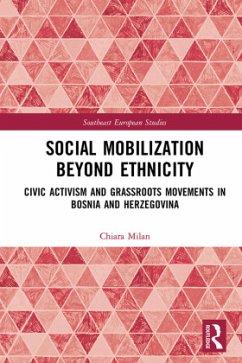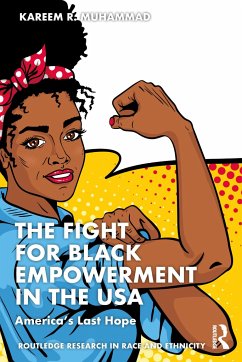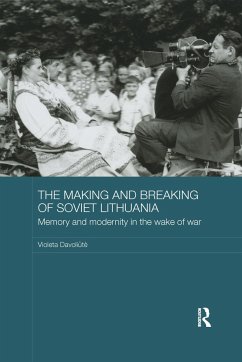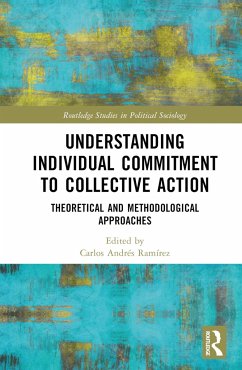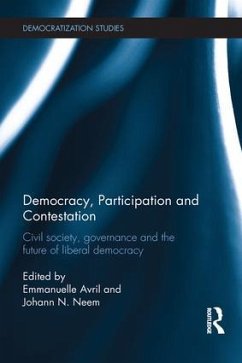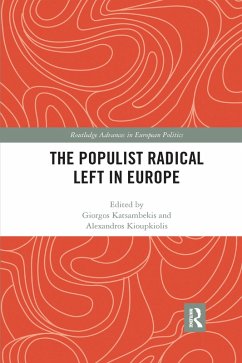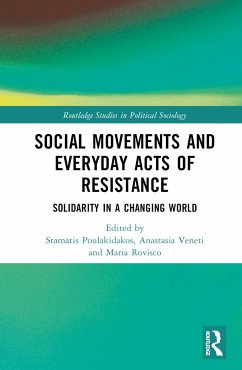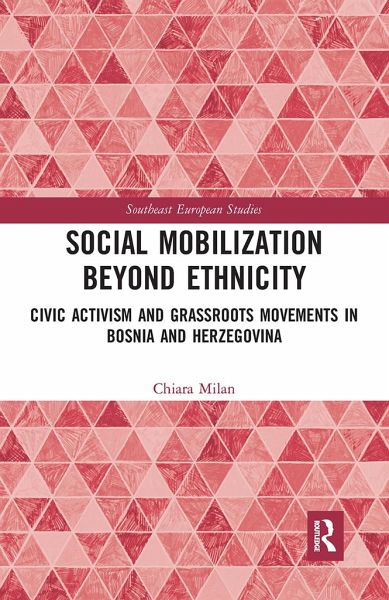
Social Mobilization Beyond Ethnicity
Civic Activism and Grassroots Movements in Bosnia and Herzegovina
Versandkostenfrei!
Versandfertig in 6-10 Tagen
45,99 €
inkl. MwSt.
Weitere Ausgaben:

PAYBACK Punkte
23 °P sammeln!
This book offers an in-depth investigation of the emergence and spread of social mobilizations that transcend ethnicity in societies violently divided along ethno-national lines. Using Bosnia Herzegovina as a case study, the book explores episodes of mobilization which have superseded ethno-nationalist cleavages.Bosnia Herzegovina emerged from the 1992-95 war brutally impoverished and deeply ethnically divided, representing a critical and strategic case for the examination and understanding of the dynamics of mobilization in such divided societies. Despite difficult circumstances for civic-bas...
This book offers an in-depth investigation of the emergence and spread of social mobilizations that transcend ethnicity in societies violently divided along ethno-national lines. Using Bosnia Herzegovina as a case study, the book explores episodes of mobilization which have superseded ethno-nationalist cleavages.
Bosnia Herzegovina emerged from the 1992-95 war brutally impoverished and deeply ethnically divided, representing a critical and strategic case for the examination and understanding of the dynamics of mobilization in such divided societies. Despite difficult circumstances for civic-based collective action, social mobilizations in the country have grown in size, number and intensity in recent years. Marked by citizen demand for accountable governance, responsive urbanism, and access to basic human rights, these protests have been driven by economic, social and political problems which cut across religious and ethnic divides. Examining the variation in spatial and social scale of contention, the book investigates movements' formation, their organizational structures and networking strategies and advances research on divided societies and social movements.
This volume will be of interest to scholars and researchers of Southeastern Europe and those examining political dissent, social movements and mobilization in divided societies, as well as practitioners in civil society, grassroots groups and political activists.
Bosnia Herzegovina emerged from the 1992-95 war brutally impoverished and deeply ethnically divided, representing a critical and strategic case for the examination and understanding of the dynamics of mobilization in such divided societies. Despite difficult circumstances for civic-based collective action, social mobilizations in the country have grown in size, number and intensity in recent years. Marked by citizen demand for accountable governance, responsive urbanism, and access to basic human rights, these protests have been driven by economic, social and political problems which cut across religious and ethnic divides. Examining the variation in spatial and social scale of contention, the book investigates movements' formation, their organizational structures and networking strategies and advances research on divided societies and social movements.
This volume will be of interest to scholars and researchers of Southeastern Europe and those examining political dissent, social movements and mobilization in divided societies, as well as practitioners in civil society, grassroots groups and political activists.





